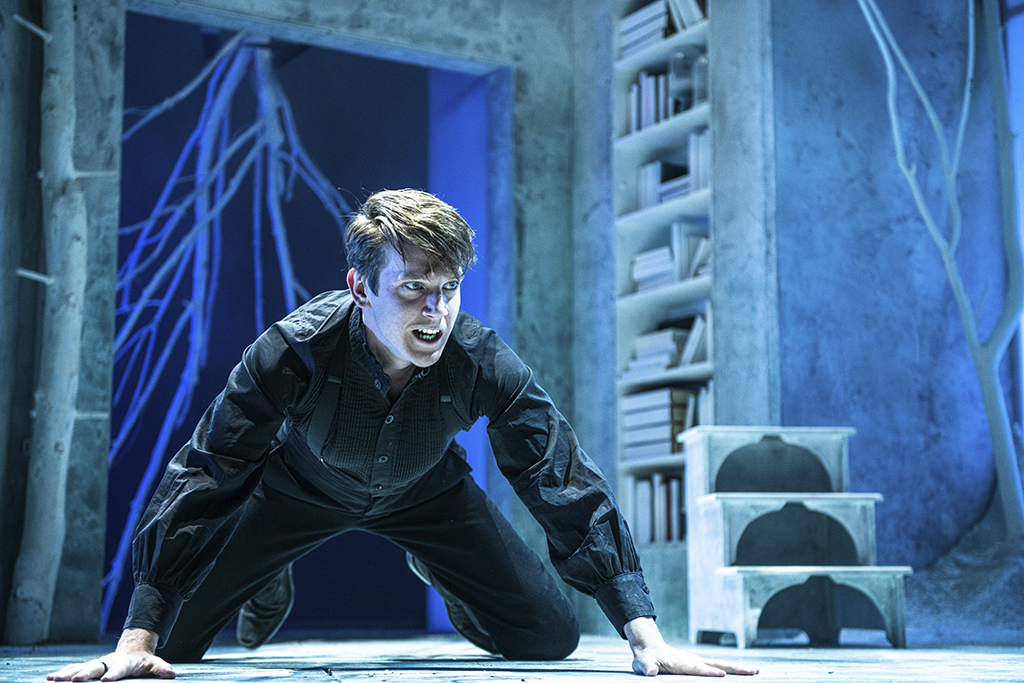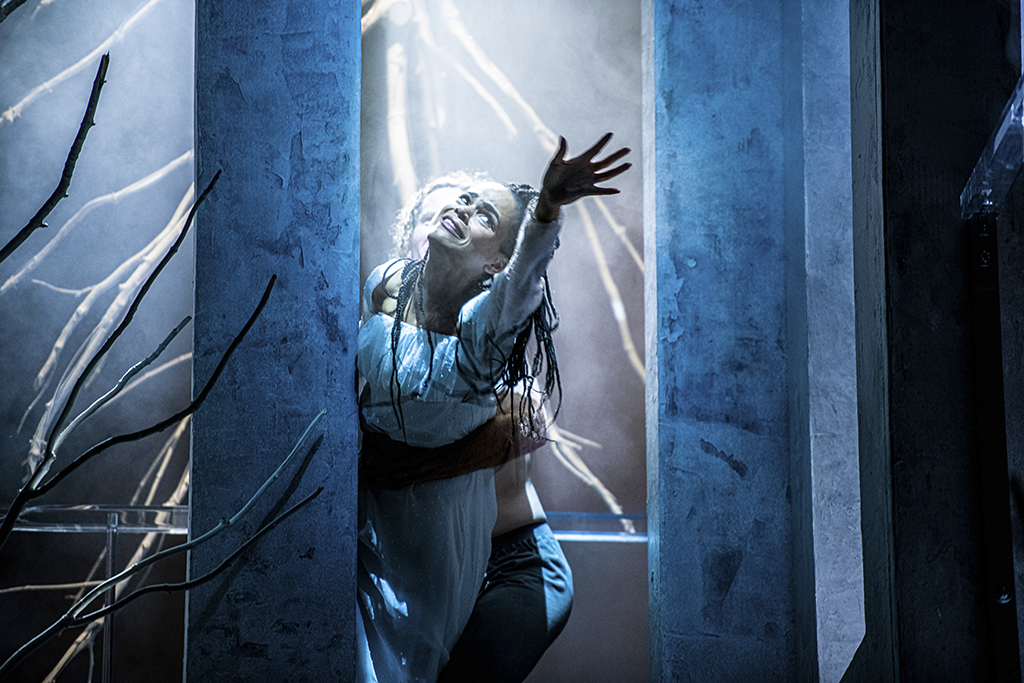
A modern Frankenstein – with Mary Shelley at its heart
Frankenstein – it’s a book that’s become a monster in itself over the years.
Mary Shelley’s Gothic tale, first published in 1818, has gone on to inspire adaptations on stage and screen, both large and small, in comic strip form, animated, and virtually any other media form you can think of.
Mary Shelley’s Frankenstein is currently being performed at Glasgow’s Theatre Royal, in an adaptation by the acclaimed Scots playwright Rona Munro.
The most famous adaptation of the tale is the classic 1931 version, with Boris Karloff playing the creature as a flat-headed monster, with bolts in its neck, an imagery which has become synonymous with the monster.
By sheer coincidence, I had recorded the classic version of the film from the Horror Channel on Sunday afternoon, and decided to watch it on Sunday evening. I had never realised until this point that it had, in turn, been adapted from a play by Peggy Webling.
Although I have never read her script, or indeed seen it performed, I would guess that it is rather dissimilar from Munro’s version, which introduces Shelley herself as a protagonist.

Ben Castle-Gibb as Frankenstein (Photo: Tommy Ga-Ken Wan)
For many years, questions were asked about Mary, questioning if she had actually written the masterpiece, given her husband was the acclaimed Percy Shelley, her friend was Lord Byron, and she was only 18 when she started work on the play.
Munro cleverly weaves together the strands of Shelley’s novel and the characters she created, with her own inner thoughts, suggesting that the monster of the novel was a creation of her own dreams, which has been haunting her ever since, and is exorcising it slowly but surely as she writes her book.
Eilidh Loan takes on the pivotal role of Mary. Although this is her professional stage debut, she carries herself with an accomplished, confident air, breathing life, darkness, wit, doubt and fears into the part.
The writing makes this feel especially relevant, as she contends with the issues facing young women, then and now, fighting against a society that wants to hold her – and her gender – back. Frankenstein’s struggles are cleverly echoed by the writer’s own thoughts.
Ben Castle-Gibb, as Victor Frankenstein, captures the tortured soul of the father-mother of the monster, starting as a happy young man, whose life becomes tormented by the creature he makes in his studies. He captures the manic energy of a man lacking sleep but full of ambition, and later, desperation, as he tries to escape the result of his own folly.

Natali McCleary as Elizabeth, Frankenstein’s bride (Photo: Tommy Ga-Ken Wan)
Michael Moreland plays the Monster, and I was particularly interested to see how he would be presented and performed. While the rest of the cast have either Scottish or received pronunciation, Moreland gives the creature a more working class sound, making it feel more detached from those around it. There’s no green skin or bolts in his neck, instead, he has a shock of hair and wears a skin-tight suit with marks and scarring on it. Don’t expect a lumbering brute – this is a part played with an articulation and intelligence, and feels true to the monster’s roots in the book.
Although a dark novel, Munro adds some wry humour that got several laughs from the audience, with a knowing wink and the occasional breaking down of the fourth wall.
Especially worth of comment are Simon Slater’s music and sound design. The latter is very moody, as it can be heard before the play begins, and after as curtain rises for the second act, before the cast return to stage. It’s strange, disconcerting and very atmospheric.
The play’s denouement sees Mary free of her dark dream, but in turn, realises that it is no longer the creature that will stalk her dreams, but those of everyone else who comes into contact with it.
Mary Shelley’s Frankenstein is a slick, confident production that manages to be old yet new at the same time. Munro’s adaptation remains faithful to its source text, but at the same time, feels fresh and current, allowing the original author’s voice to come through.
Despite having a cast of just seven, with the remaining cast members doubling, tripling and even quadrupling up as many more characters, Mary Shelley’s Frankenstein feels more alive than ever.
Mary Shelley’s Frankenstein is at the Theatre Royal, Glasgow, until 30 November. Click HERE for tickets.
TAGS

